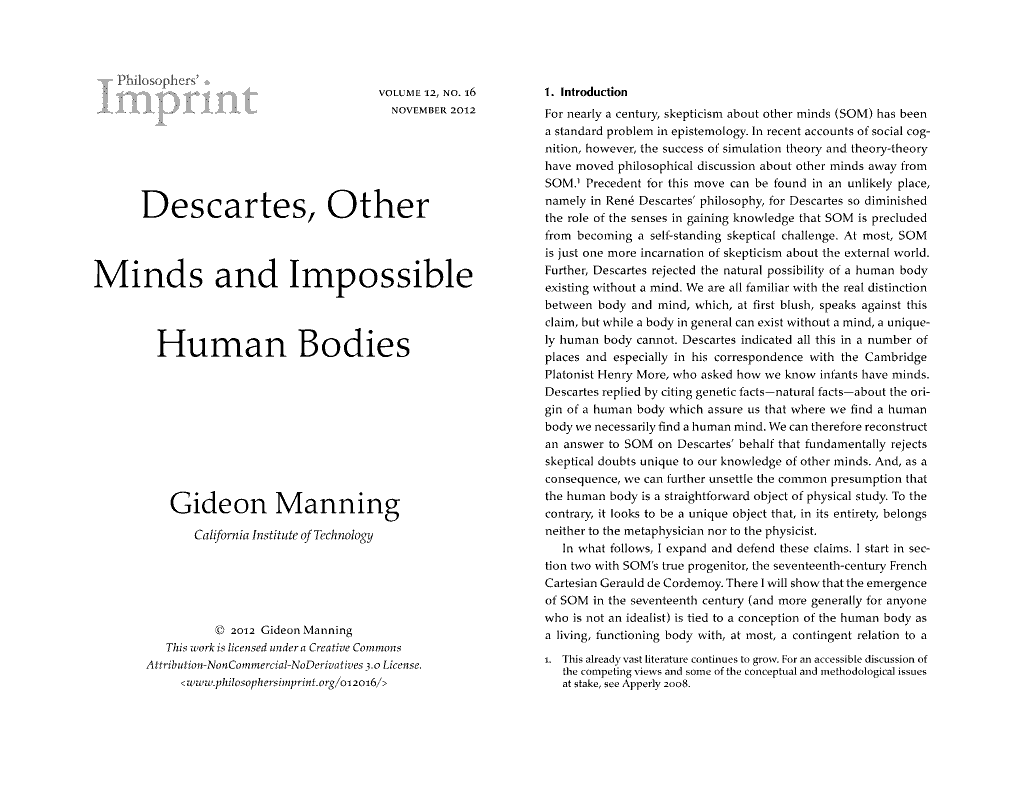Descartes, Other Minds and Impossible Human Bodies
Skip other details (including permanent urls, DOI, citation information): This work is licensed under a Creative Commons Attribution-NonCommercial-NoDerivatives 3.0 License. Please contact [email protected] to use this work in a way not covered by the license.
For more information, read Michigan Publishing's access and usage policy.
Abstract
I have three aims in this paper. First, I show that in order to motivate skepticism about other minds it is necessary to have both the right conception of the human body – alive and fully functioning without a connection to the mind – and the right conception of the mind – knowable directly in our own case and without the need for inference. Second, while the seventeenth-century Cartesian Gerauld de Cordemoy had the right conception of the human body and the right conception of the mind, and likely wrote the first self-standing monograph dedicated to skepticism about other minds, I show that René Descartes lacked the right conception of the human body. Instead, Descartes always maintained that the living functioning human body exists with a mind. Finally, I show that when responding to skepticism about other minds at the prompting of Henry More, Descartes did not appeal to competent language use but to natural facts about the origin of the human body. This serves to reiterate that for Descartes where there are living human bodies there are always minds. These results challenge us to reexamine the human body’s place in Descartes’ physics of extended matter. I explore this last point in my concluding remarks.



